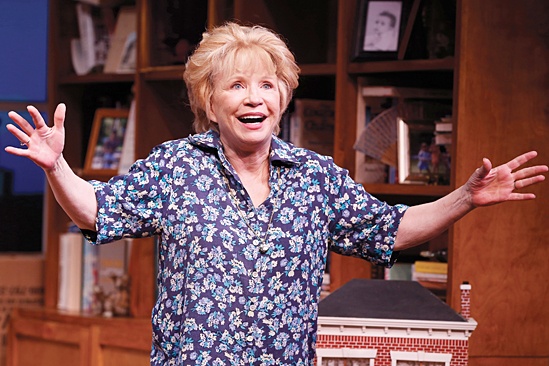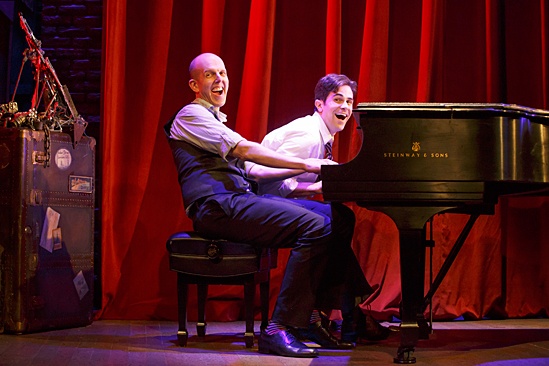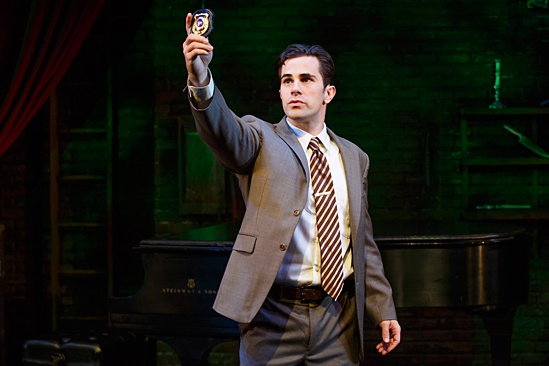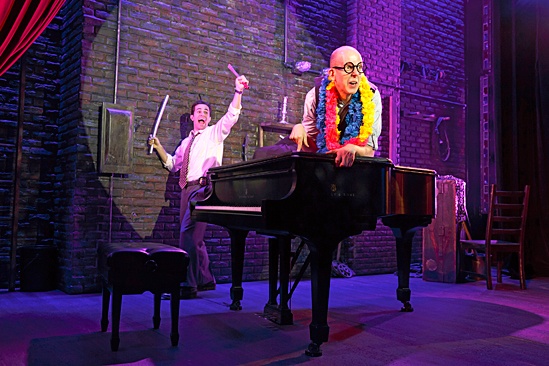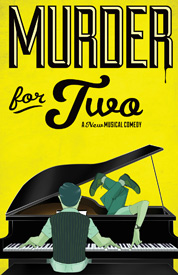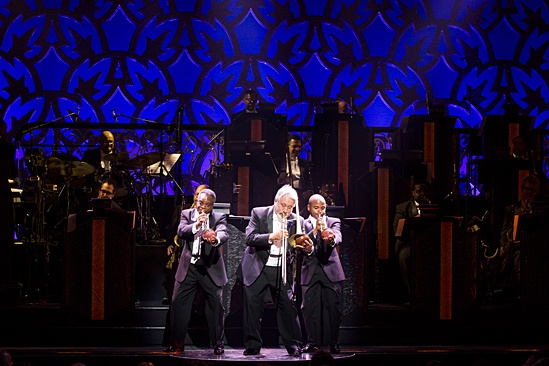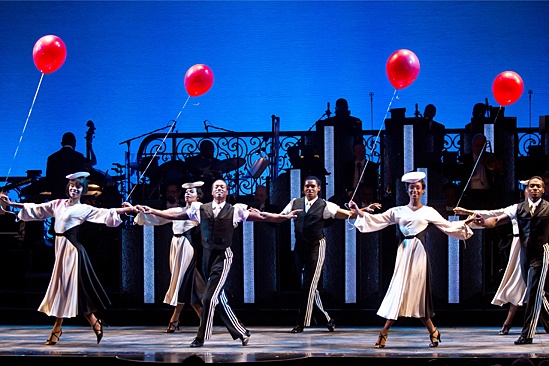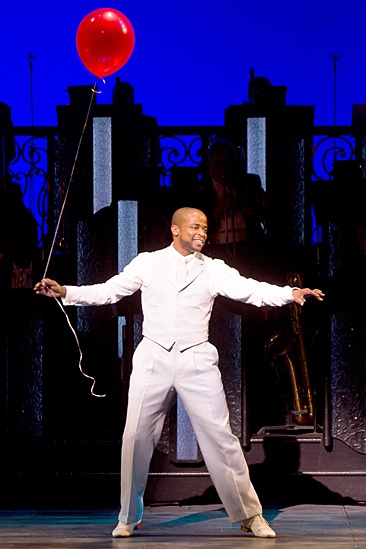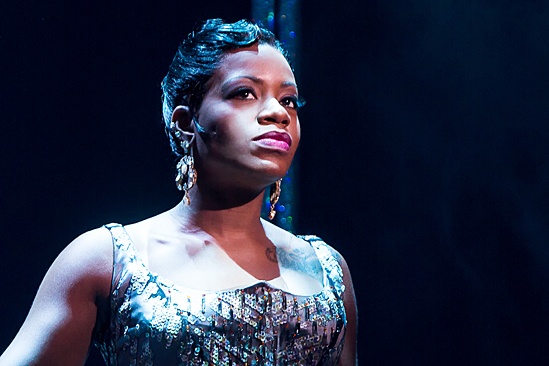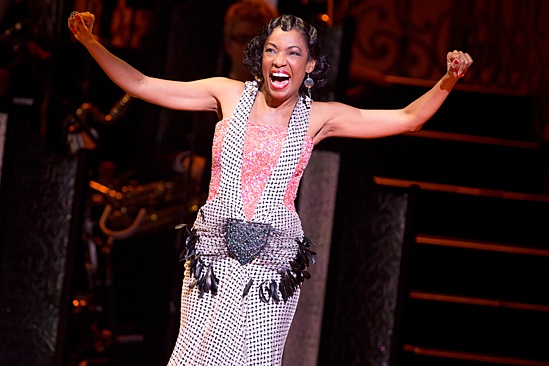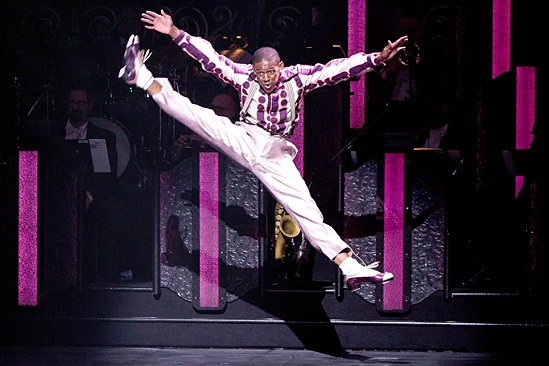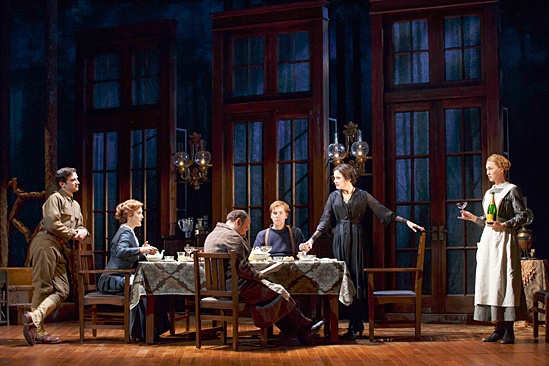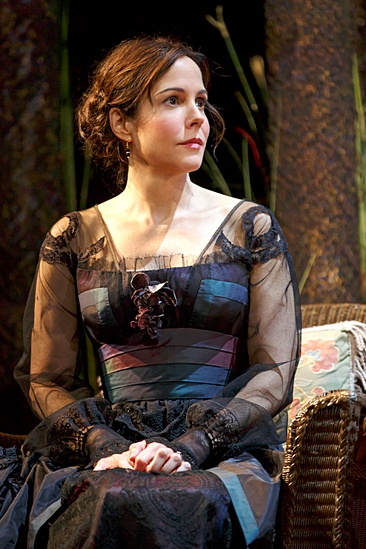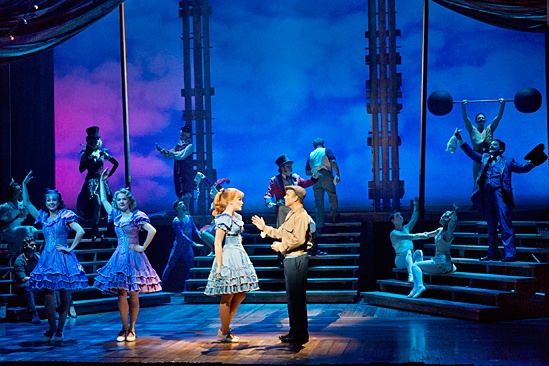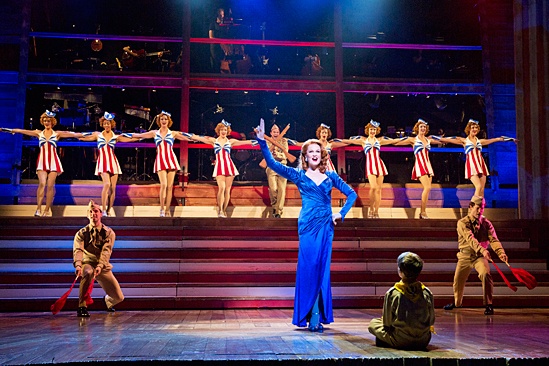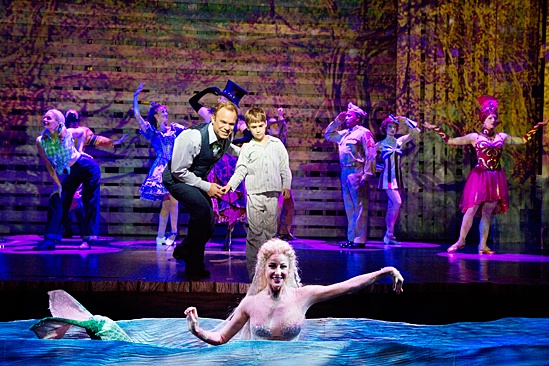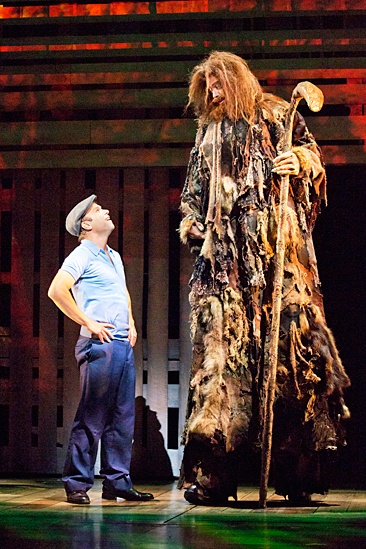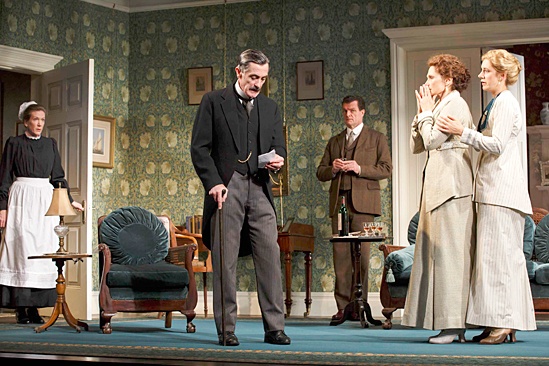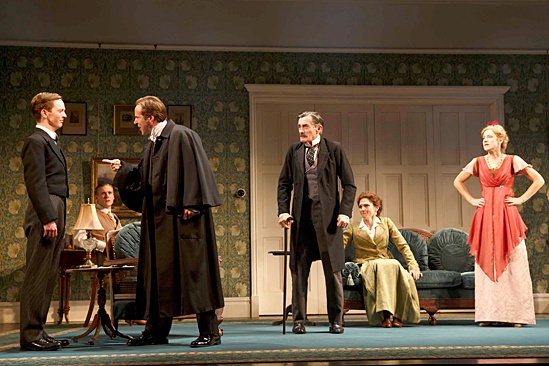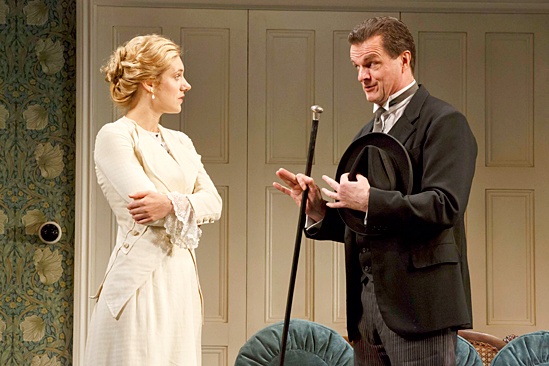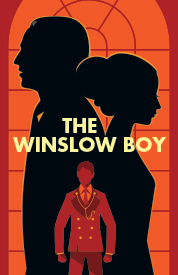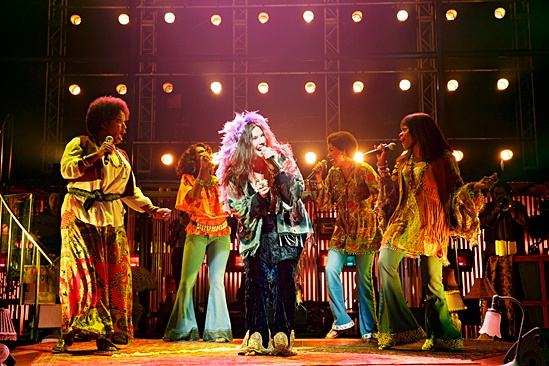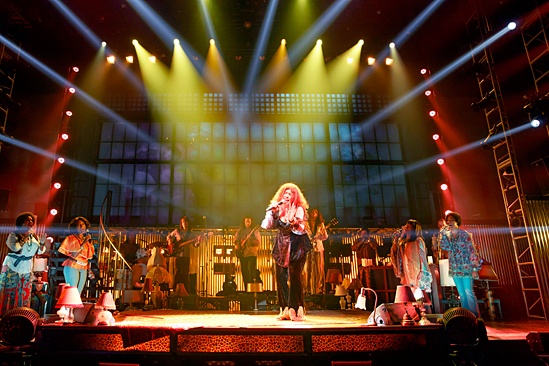
In 2006 Alison Bechdel’s graphic memoir FUN HOME – A family tragicomic was published and immediately became a sensation, recounting her rearing in rural Pennsylvania with her two brothers under the tyrannical rule of their father Bruce who was a strict disciplinarian and English teacher who ran the local funeral home and her put upon mother a would be thespian who also taught school.
As it turns out Alison discovers she is a lesbian who follows her dream of becoming a cartoonist and while in college discovers that dad is fooling around with men and young boys and that mom knew all too well what was happening. And then dad was hit by a truck and died which everyone supposed was a suicide.
And now at The Public Theater is an unsettling, uncomfortable yet always interesting chamber musical based on this book FUN HOME – which was anything but.

The painfully honest libretto is by Lisa Kron. It is sharp and warm and funny. She also wrote the lyrics to the music of Jeanine Tesori which sounds heavily influenced by Sondheim. But there is only one Sondheim. At times, when she finds her own voice her music soars especially when Alison finds herself falling in love with Joan and sings about changing her major to sex with Joan which is a high point in this production where Alison is portrayed by three women.

Our guide, the older Alison (Beth Malone) who is omnipresent along with her sketch pad is somewhat cold and distant. Then there is the child – Small Alison (Sydney Lucas) precocious and not caring about dresses or barrettes – just wanting to draw. And finally Medium Alison- Al (a delightful Alexandra Socha) trying to find herself and trying to fit in at college where she finds Joan (Roberta Colindrez) and falls hard.
Michael Cerveris (Bruce) has the difficult job of portraying an intensely unlikable but charming, complicated and conflicted closet queen who sneaks out at night to cruise and who hires a hunky guy Roy (Joel Perez) to help him refurbish his Victorian home and to play with.

Alison’s two brothers are on the sideline and seem to be there to fill out the production numbers to help lighten the seriousness of the piece. Playing in coffins and spoofing the Partridge Family for instance.

This is a family in disarray with lots of secrets and lies that unfold in song. A terrific Judy Kuhn (Helen – long suffering mother) has a gut wrenching number that she delivers with about to explode restraint magnificently.

What happened to Joan? She isn’t anywhere to be found with the older Alison as she sketches and tries to understand her father and herself on the large stage that at times dwarfs the intimacy of the story. The sound system (Kai Harada) could also be better as there seems to be an echo effect happening where we miss some of the dialogue. It appears that one side of the audience responds better than the other.
Sam Gold, the director, manages to balance the comedy and the tragedy extremely well blending the past and present that sometimes is blurred but you won’t come out of FUN HOME happy or humming.
Extended through December 29th
www.publictheater.org Photos: Joan Marcus
Visit www.TalkEntertainment.com
Tags: Comments Off on FUN HOME – A lesbian cartoonist, her gay dad and a funeral home with music


